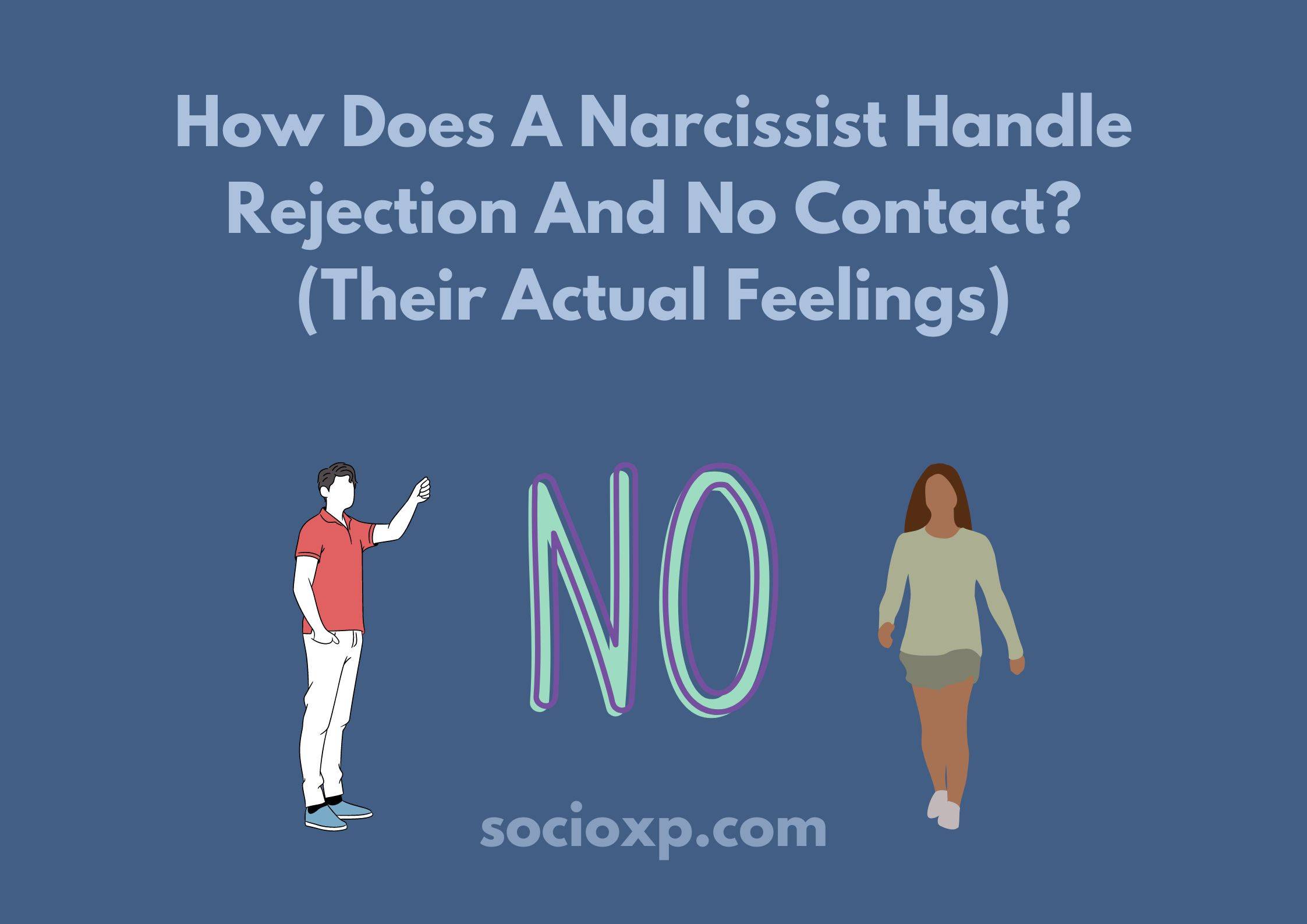How To Handle A Narcissist Who Wants Revenge? (Working Ways)
How to handle a Narcissist who wants Revenge? Narcissists seeking revenge on their exes, or anyone who has hurt them or questioned their ways might be a common sight for you if you have ever come across someone who is diagnosed with a narcissistic personality disorder. So why do narcissists seek revenge?
Narcissists seek revenge when they feel challenged, when their self-esteem is hurt, or when they feel a threat that their true personality might get exposed. In such conditions, narcissists make a strong mind to seek revenge for everyone who challenges their superiority, pride, self-esteem, and their ways. When someone hurts their ego, they set their mind to seek revenge on them.

This article provides answers to all your inquisitive questions including, “Why do narcissists seek revenge?”, “Can narcissists seek revenge on their loved ones?”, “Is there any way to be safe from their revenge?”, or “How to handle a Narcissist who wants Revenge? Let us get to know the answers further.
Why would a narcissist seek revenge?
There are a few possible reasons why a narcissist might seek revenge on someone that is mentioned below,
Narcissistic Injury
Narcissistic injury can be defined as a phenomenon or circumstance that can cause damage to a narcissist’s fragile and sensitive ego. They face this when they feel they are rejected, criticized, blamed, insulted, ghosted, ignored, lose control, power, admiration, and so on. Narcistsc injuries are psychological as they affect their mental health and leave a huge impact on them. Narcissists can not let go of things, people, and situations that easily and so due to their dissatisfied selves, they are prone to such psychological injuries which are known as narcissistic injuries.
Control and Manipulation
Narcissists crave control and manipulate others for their sake. In the process, they might also seek revenge to manipulate others into fulfilling their demands, or to punish those who dare to defy them. They may use revenge as a way to teach others a lesson and remind them of their worth in the narcissist’s world.
Obsession with winning
Narcissists have a relentless drive to win, dominate, and compete. They may seek revenge as a way to “even the score” or to prove that they are superior to their perceived enemies. They may view revenge as a game that they must win at all costs.

Lack of empathy
Narcissists have a limited capacity for empathy and often view others as objects to serve their needs, desires, and wishes. They may definitely seek revenge as a way to teach others a lesson, and punish those who have “wronged” them or to assert their power over them.
Projection
Narcissists often project their own flaws, weaknesses, and insecurities onto others and may seek revenge to deflect blame and avoid taking responsibility for their actions. They may accuse others of the very things they are guilty of and use revenge as a way to liberate themselves from the wrongdoing and prove others guilty or blame shift the matter.
There are a few other possible reasons a narcissist might seek revenge on someone including feeling slighted or humiliated, perceiving the other person as a threat to their status or dominance, or simply seeking to assert their control over the situation. Narcissistic individuals often have a distorted sense of self-importance and entitlement, and may take any perceived criticism or rejection as a personal attack. Additionally, they might seek to punish someone who has stood up to them or tried to expose their manipulative behavior.
How to Handle a Narcissist who wants Revenge?
Dealing with a narcissist can be challenging, as everything you do for them, either good or bad can be interpreted in a different manner than your actual intentions regarding the same. If you do something good for them they might appreciate you but might consider your deed as an obligation. If at all you do something which is not in their favor then only god can save you from their wrath, as a narcissist cannot bear anything which can be harming their fake personalities. Dealing with a narcissist who might ought to seek revenge, harm you, or are full of vengeance can especially be a daunting experience.
1. Set Boundaries
The first and foremost step in dealing with a narcissist who wants an act of revenge is to set up clear and firm boundaries. This means being clear about what you will and will not tolerate from the narcissist moving forward. It is important to communicate these boundaries clearly, both verbally and in writing, and to stick to them consistently.
The first step is taking your power back by setting boundaries. Narcissists can be demanding and take up a lot of your time and energy. Setting boundaries helps you protect your time, space, and mental health. Setting boundaries means defining what sort of behaviors are acceptable, and what actions are not acceptable, and making it clear what all practices are acceptable and unacceptable. Narcissists tend to cross boundaries frequently. Being firm and assertive about your limits and holding them accountable if they violate them is also one of the best to set boundaries. You can save yourself from narcissistic revenge by holding up your guard by making firm boundaries.
2. Avoid trying to reason with a narcissist
It is important to keep in mind that narcissists do not respond well to reason or logic. They are not interested in understanding your perspective or working towards a mutually beneficial solution. Instead of trying to reason with them, focus on protecting yourself and setting clear boundaries.

3. Stay calm, collected, and composed
Narcissists are irksome and thrive on drama and attention. So when you remain calm and composed instead of reacting, they would literally get frustrated. Not engaging in any kind of drama, arguments, discussions or disagreements may subtle down the situation. Responding in a non-emotional and calm way and showing them that their behavior is not going to affect you, may save you from their revenge.
Narcissists have a knack for provoking people and drawing them into a defensive argument. Try to stay calm and rational as much as possible. Do not take the bait or get caught in a blame-shifting or victim-blaming game. Keep your emotions in control when dealing with a narcissist. It is important to remain calm and composed during the conversations.
Ways to remain calm when the narcissist is provoking you for seeking their revenge,
- Stay focused on the conversation – Keeping your focus solely on the conversation and not on the narcissist’s behavior may help you from getting distracted and losing your composure.
- Taking deep breaths – Before reacting to anything, take a deep breath and try to calm yourself down. This will give you time to think and respond rather than reacting impulsively.
- Respond with polite words – Respond politely and respectfully even if the narcissist is trying to provoke you. Avoid using negative words or an aggressive tone.
- Seek Support – If the situation is difficult to handle, seek support from someone you trust or a mediator who can help resolve the revenge situation.
4. Document Everything
If you are dealing with a narcissist who is strong-headedly trying to seek revenge by hook or crook then this situation may get dirty, so documenting everything is important to keep records. Keep a record of all conversations, texts, emails, and everything related to them blackmailing you for seeking their revenge. This documentation may be useful if the matter gets out of hand and it becomes necessary to seek legal action against them.
5. Avoid giving them Attention
Narcissists thrive on attention and admiration. They seek adoration, attention, and admiration so they will go to great lengths to get it. Avoid feeding their ego by refusing to give them the attention they seek.
Instead of engaging in conversations that revolve around the revenge topic or scene, shift the conversation to other topics. You can also avoid making eye contact or nodding to communicate.

6. Seeking Support
Dealing with a narcissist who is seeking revenge can be emotionally draining. It is important to seek support from friends, family, or a therapist. This can help you to stay grounded and focused, and to maintain a sense of perspective amidst the chaos of their behavior.
Conclusion
Dealing with a narcissist who wants revenge can be a very challenging task, but by following the above-mentioned points or strategies, you can protect yourself and come out of the situation unscathed. Remember to set clear boundaries, remain calm and collected, and always seek support whenever required. Prioritizing your own safety and well-being is the utmost important step while dealing with a narcissistic individual.
Narcissists are masters of manipulation, so be aware of gaslighting, guilt-tripping, and other tactics they may use to control the conversation. Narcissists can be vindictive and retaliate if they feel threatened or called out. Sticking to the facts and avoiding getting into emotional arguments or discussions when speaking to a narcissist. Talking to a narcissist can be emotionally draining. Make sure to take care of yourself afterward and practice self-care. If you are having difficulty communicating with a narcissist or feel threatened by them in the relationship, consider talking with a therapist. A therapist can provide support and guidance for dealing with narcissistic individuals.
- What to expect when the Narcissist knows you know? – 11 Potential Reactions - November 6, 2025
- How does a Narcissist respond to No Contact?: 10 Plausible reactions - November 6, 2025
- The Inverted Narcissist: Traits that Describe Them - November 6, 2025


